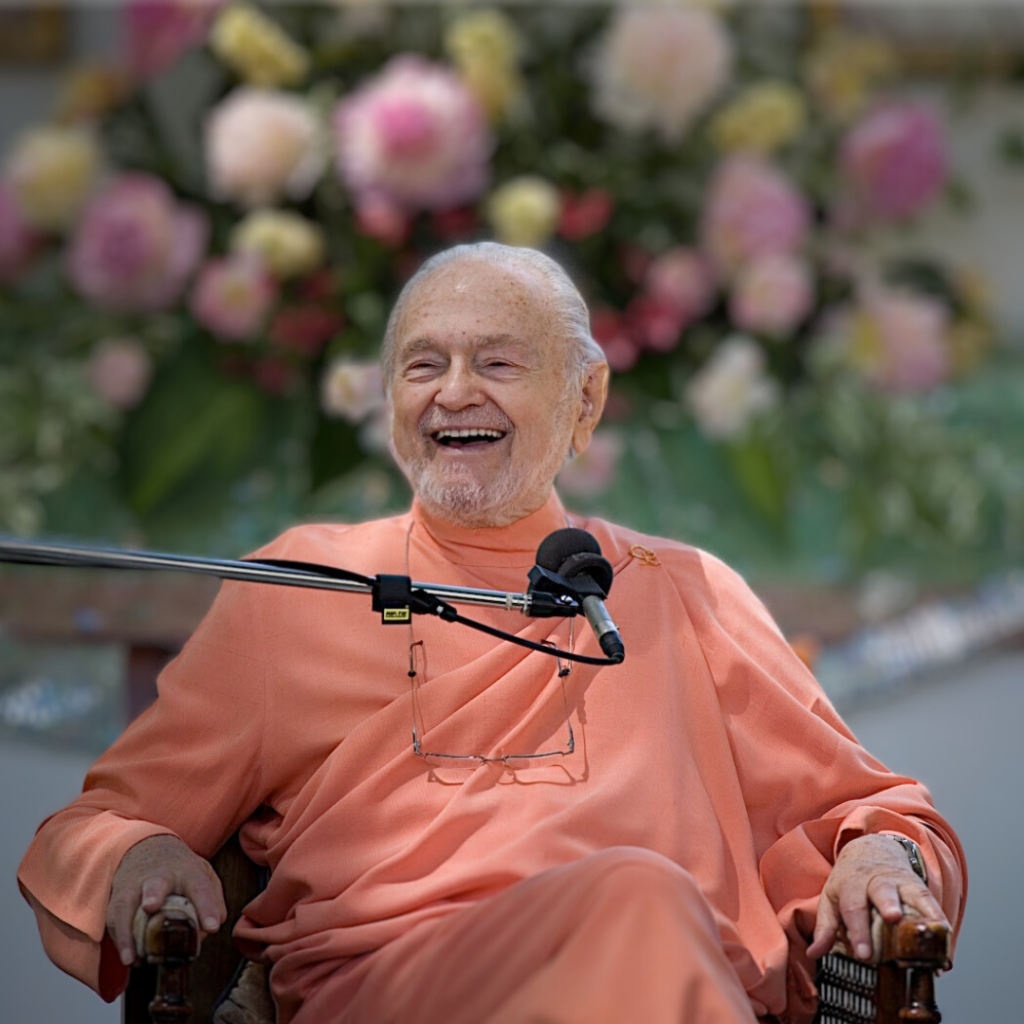Simple Steps to Happiness
Paramhansa Yogananda said that everyone in the world is motivated by the same twin desires: “to be happy and avoid pain.” Each of us can take some simple, and yet surprisingly effective strides toward that goal. Even a series of little steps can produce great changes if we apply them consistently.
The road to happiness starts by replacing bad habits with good ones. Many people have a tendency to focus primarily on physical habits such as diet and exercise. But since we have a body, mind, and soul, we need to address all three aspects.
Swami Kriyananda wrote, “During an interview with newspapermen Master prescribed the following rules as a good daily regimen for all: ‘Morning and evening sit in introspective silence thinking of your most important engagement with the soul within. Exercise fifteen minutes. Walk thirty minutes. Study one hour. Meditate one hour and a half. Smile from within all hours.’”

A recent study at the University of California at Berkeley revealed some very helpful and hopeful information. Working with more than 70,000 people involved with an initiative called “The Big Joy Project,” scientists found that you can quickly gain a 25% boost in your happiness level by consciously doing “micro-acts of joy.” The study shows that these “micro-acts” led to increased feelings of hope, optimism, and happiness.
It works this way: Every day for seven consecutive days, do a small act to boost your emotional well-being. For example, make a gratitude list or keep a gratitude journal. Another practice would be to visit a sick friend or do a nice gesture for someone you know, or even better, for a stranger. Yet another micro-act would be to reframe something you think of as negative into a positive perspective.
Much of the benefit of this practice comes from the conscious decision to make a plan for the week, and then to carry out your daily act of “micro-joy.” What better time to start this than the day after Thanksgiving? Take a few moments right now to think about those things for which you are grateful. Write a few notes of gratitude to those who have helped or uplifted you during the year.
Now make a plan for next week of seven daily acts of micro-joy. Doing this will help us reprogram our mental habits. Paramhansa Yogananda said, “Don’t expect to go to heaven unless you carry a portable heaven within your heart every day.” He also gave this counsel: “If you find your thoughts carried away, little by little, as prisoners of temptation, then you should train your armies of self-control. Seek good company, take right care of the body, and keep your thoughts busy with wonder and bliss of God.”
Finally, and most important, is a daily practice of deep meditation. Sometimes meditators can become discouraged by a lack of experiences. But Master said, “Do not grieve because you do not see light or images in meditation. If you go deep into the perception of bliss you will find there the actual presence of God. Seek the Whole, not a part.”
If we do our part and make an effort, God will reach out to help us. One time Master blessed a disciple who was having a hard time financially. The anxiety-ridden student asked Master how he could stay so calm in the face of troubles. The Master looked at him intently and said, “Remember, the same Father who protects me, protects you. He is our common Father.”
Replacing bad habits with good ones is important, but the greatest thing we can do to improve happiness is to bring God into every aspect of life, and offer everything we have and are into His light. Faith and gratitude are the cures for all our ills.
In joyful gratitude,
Nayaswami Jyotish